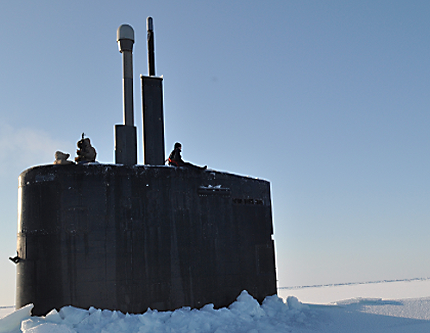DOD study: Climate change is a security threat -- right now
A report to Congress warns that the effects of global warming are no longer a "long-term risk."

There's a standing joke among military meteorologists and Navy oceanographers: Soldiers, sailors and airmen often say they are not interested in climate, but they care a lot about the weather.
That attitude is slowly changing among senior leaders, based on the conclusions of a Pentagon report to Congress on the national security implications of climate change. The report finds that rising sea levels and climate disruptions are a "present security threat, not strictly a long-term risk."
"We are already observing the impacts of climate change in shocks and stressors to vulnerable nations and communities, including in the United States, and in the Arctic, Middle East, Africa, Asia, and South America," warns the report (PDF), which was released on July 29.
Among the biggest concerns are sea-level rise around U.S. naval installations and the impact of severe weather on military operations, the report noted. The Navy in particular is concerned about the impact of melting sea ice in the Arctic and its impact on naval operations.
Retired Adm. David Titley, a meteorologist and former oceanographer and navigator for the Navy, told National Public Radio last fall: "Look at one of the places in the world that is changing faster than any other place else, it's the Arctic. So how does the U.S. military get ready to operate in the Arctic? Do we have the right kinds of ships? Do we have our sailors trained? Have they gone up there before? Do they actually understand, you know, how little infrastructure there is—the kinds of weather and sea and ice conditions that they're going to see?"
Titley also noted a five-fold increase in the number of ships going through the Bering Strait, the stretch of water between Alaska and Russia that connects the Pacific and Arctic oceans. The region also contains some of the last great reserves of oil and gas. Hence Russia, China and other nations have been making territorial claims as sea ice recedes and shipping traffic booms.
DOD said the Senate Appropriations Committee requested the climate study in conjunction with the fiscal 2015 military spending bill. Lawmakers directed the undersecretary of defense for policy to identify the most serious and likely climate-related security risks for each military command and how each command would integrate risk mitigation into their planning.
Pentagon planners are "beginning to include the implications of a changing climate in [their] frameworks for managing operational and strategic risks prudently," the report noted. "Moreover, the department is working with other U.S. government departments and agencies, partner nations and many other entities on addressing climate security risks and implications."